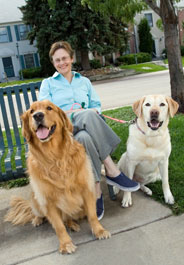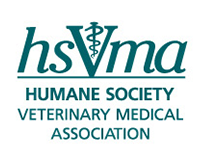Changing the Face of Animal Health ResearchDecember 3, 2009 By Patricia N. Olson, DVM, PhD As a former researcher and practitioner, I recognize the tremendous need for research that truly benefits animals and gives veterinarians and their teams the tools they need to provide the best possible care. As an animal lover, I believe, as I'm sure you do, that such research should be conducted humanely, ethically and with the utmost respect to animals and their needs. Fortunately in my role as president and CEO of Morris Animal Foundation, my job is to ensure that the Foundation holds true to its mission of improving the health and welfare of animals by funding animal health studies that protect all animals—those participating in studies and those who will later benefit from the research. Addressing the Controversy Dr. Olson believes that animal health research should be conducted humanely, ethically and with the utmost respect to animals and their needs. Suzanne Shaff Photography Animal research is controversial, and it is difficult to dispute that some animal research has been conducted with less than optimal oversight and little concern for the animals involved. At the same time, specific health research is necessary to advance veterinary medicine and it may, at times, require animal participation. Humane research is possible and necessary. For example, clinical trials are the only scientifically sound and safe way to determine whether a medication or treatment will work in the animal (or human) for whom it is intended. Morris Animal Foundation–funded clinical trials have led to better drug therapies for canine epilepsy and new drugs for pain management. A current clinical trial is looking at the best drug for preventing blood clots in cats with heart disease. Another is evaluating a new therapy for treating bone cancer in dogs. Even in cases that involve laboratory animals, those animals—whether mice, horses or any other animal—should have healthy living conditions and participate in enrichment programs. The Foundation strongly recommends adoption after a study is completed and whenever appropriate. For wildlife, Morris Animal Foundation carefully evaluates any stress that might occur if an animal in the wild requires capture to be studied. Since many species are at the brink of extinction, our work is critical for advancing health, developing drugs that are unique to the needs of wildlife, establishing normal blood values, and evaluating mutating viruses and environmental pollutants. A Leading RoleWe have taken a leading role in changing the face of animal research to one that reflects collaboration and compassion. Our Health Study Policy for Animals Involved in Research, which began as guidelines in 2004 and became policy in 2008, is one of the strongest in the industry. This policy specifically outlines our study-selection process and helps us ensure the physical health and emotional well-being of all animals affected by our work. Every study that involves animals requires an animal involvement justification form that details how many animals will be involved, what the involvement will be and what will happen to the animals at the study's end. All studies involving animals also require review by an external ethics committee to ensure that the Foundation's health study policy has been followed. This coming year, we will be auditing studies taking place in the United States and internationally. As you can imagine, the guidelines initially raised eyebrows—not because scientists didn't want to follow them, but because oftentimes their institutions weren't set up to accommodate these new demands. The good news is that much has changed over the past five years. In some cases, researchers have worked hard to further improve enrichment at their institutions—some have even thanked Morris Animal Foundation for giving them the leverage they needed to institute change. Future animal health research could cure canine and feline cancer, prevent colic in horses or save an endangered species. Scientific research is certainly crucial to improving the health and welfare of all animals, but it must always be conducted with care, compassion and respect. Patricia N. Olson, DVM, PhD, is the president/CEO of Morris Animal Foundation, the largest non-governmental granting agency for companion animal and wildlife health studies, and a member of HSVMA's Leadership Council |
